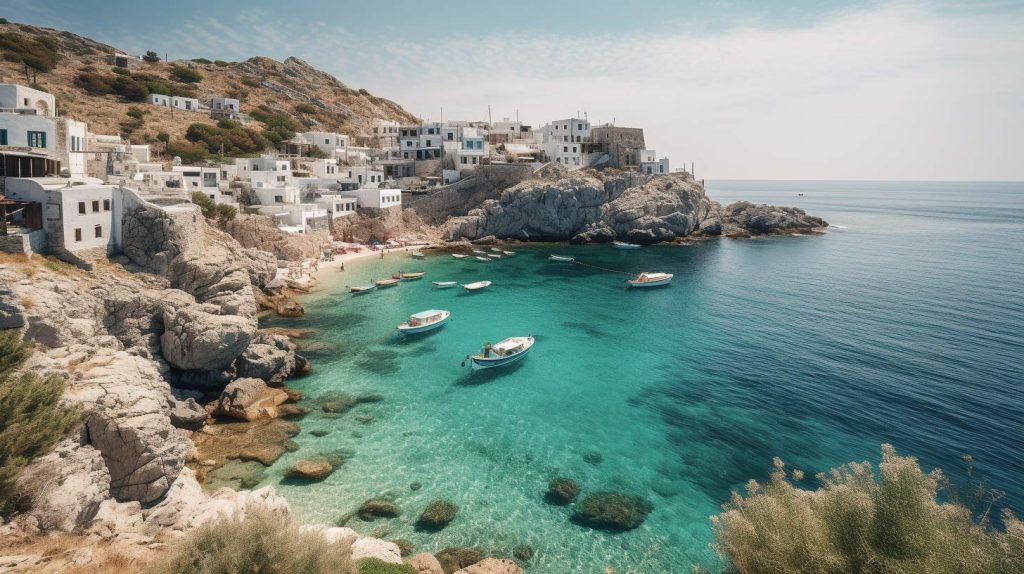When embarking on the exciting journey of planning a vacation, one often encounters the captivating debate of choosing between two remarkable destinations: Greece and Turkey. Nestled at the crossroads of Europe and Asia, these two countries boast a rich tapestry of history, culture, and natural beauty that can leave travelers in a delightful dilemma. Each offers a distinct blend of ancient wonders, vibrant traditions, and breathtaking landscapes; beyond their picturesque coastlines and captivating cities, Greece and Turkey present travelers with various experiences that cater to various interests. The ancient ruins of Greece stand in contrast to Turkey’s diverse cultural influences, and the Aegean Sea’s turquoise waters compete with Cappadocia’s stunning landscapes. While both countries offer enchanting journeys, understanding their unique offerings can help you make an informed decision that aligns perfectly with your travel aspirations.
Exploring Greece and Turkey
Greece, the birthplace of democracy and ancient philosophy, is a paradise for history enthusiasts. From the iconic Acropolis of Athens to the ancient ruins of Delphi, Greece offers a glimpse into the grandeur of the past. The idyllic islands of Santorini, Mykonos, and Crete boast breathtaking sunsets, pristine beaches, and charming villages. Mediterranean cuisine, emphasizing fresh seafood and olive oil, is a treat for food lovers.
On the other hand, Turkey is located between Europe and Asia. Istanbul, the transcontinental city, presents a captivating fusion of cultures with the historic Hagia Sophia and the vibrant Grand Bazaar. The surreal landscapes of Cappadocia, with its hot air balloon-filled skies and the ancient city of Ephesus, add to Turkey’s allure. Remember to savor traditional delights like kebabs, baklava, and Turkish tea.
Which One is Better for Culture and Relaxation?
Greece’s archaeological sites and museums provide a deep dive into its mythological past, while Turkey’s diverse heritage showcases the splendor of the Ottoman Empire and its interactions with various civilizations. Your preference for ancient history versus a rich tapestry of influences will determine which destination resonates more with you.
If relaxation is your primary goal, Greece and Turkey offer ample opportunities. Greece’s serene islands provide the ideal setting for unwinding on white sandy beaches and basking in the sun. Turkey’s coastal towns like Bodrum and Antalya offer luxurious resorts and spa retreats, perfect for rejuvenation. Whether you prefer the tranquil charm of the Greek islands or the opulent relaxation of Turkish resorts, both options promise a revitalizing escape.
Are there any safety concerns for travelers in Greece and Turkey?
Greece and Turkey are popular tourist destinations and are safe for travelers. However, like any travel destination, one must be aware of specific safety considerations to ensure a smooth and enjoyable trip.
While Greece is safe, petty theft can occur in crowded tourist areas, particularly in Athens and other major cities. Keep a close eye on your belongings, use anti-theft bags, and avoid carrying valuable items unnecessarily. If you plan to rent a car or use local transportation, be cautious on the roads, as driving styles may differ from what you’re used to. Follow traffic rules and exercise caution, especially in busy city centers. Some areas of Greece are prone to wildfires during the hot summer months. Listen to local authorities’ advice and stay informed about potential risks.
Some border regions in southeastern Turkey are near conflict zones. Avoiding travel to these areas due to potential security risks is recommended. Check your government’s travel advisories before planning your itinerary. Turkey is predominantly Muslim, so respecting local customs and traditions is essential. Dress modestly when visiting religious sites and be aware of local etiquette. Ensure you drink bottled or purified water to avoid any health issues. Also, make sure to have travel insurance that covers medical expenses. Familiarize yourself with local laws and customs, as some behaviors acceptable in your home country might not be in Turkey.
Which destination offers better outdoor activities?
Greece and Turkey offer various outdoor activities and adventures for travelers seeking an active and adventurous vacation.
Greece:
Greece’s stunning islands offer opportunities for sailing, snorkeling, scuba diving, and swimming in the crystal-clear waters of the Aegean and Ionian Seas. Each island has its unique charm, from the romantic sunsets of Santorini to the vibrant nightlife of Mykonos.
The Greek mainland and islands have numerous hiking trails that cater to various skill levels. The island of Crete, for example, offers the Samaria Gorge hike, while the Vikos Gorge in the Zagori region is one of the deepest gorges in the world.
Apart from swimming and snorkeling, you can enjoy windsurfing, kiteboarding, and kayaking along the coastlines of Greece. Naxos and Paros are known for their excellent windsurfing conditions.
Turkey:
The otherworldly landscapes of Cappadocia make it a hotspot for hot air balloon rides. Witnessing the sunrise over the unique rock formations is an unforgettable experience.
Turkey offers diverse landscapes for hikers, including the Lycian Way, a long-distance trail along the stunning coastline, and trekking opportunities in the Kaçkar Mountains.
Turkey’s southwestern coast, known as the Turquoise Coast, is a haven for sailing and cruising. Exploring hidden coves, ancient ruins, and clear blue waters is a must-do.
Oludeniz, a picturesque coastal town, is a popular destination for paragliding. Soar above the beautiful Blue Lagoon and enjoy breathtaking views of the surrounding area.

What are the visa requirements for traveling to Greece and Turkey?
The visa requirements for traveling to Greece and Turkey vary depending on your nationality and purpose. Greece is part of the Schengen Area. If you’re a citizen of a country that is not visa-exempt for the Schengen Area, you’ll likely need to apply for a Schengen visa to enter Greece. This visa allows you to travel within the entire Schengen Area, which includes many European countries. Citizens of certain countries, such as the United States, Canada, Australia, and many European Union countries, can enter Greece for tourism, business, or family visits without a visa.
Turkey offers an electronic visa (e-visa) system for citizens of many countries. This e-visa allows you to enter Turkey for tourism and business purposes for stays of up to 90 days within 180 days. The e-visa is available for citizens of countries that are eligible for this system. Some nationalities can also obtain a visa on arrival at specific entry points in Turkey. However, applying for the e-visa in advance is recommended to avoid any potential issues upon arrival.
Is language a barrier in either country?
Language barriers in Greece and Turkey are generally not significant obstacles for travelers. English is commonly spoken in Greece, especially among younger generations and those working in the tourism industry. In popular tourist destinations like Athens, Santorini, and Mykonos, you’ll find that many people working in the service sector speak English. Greek is the official language of Greece.
English is also widely spoken in tourist areas of Turkey, particularly in cities like Istanbul, Antalya, and Bodrum. Many hotel staff, restaurant servers, and tour guides speak English fluently. Turkish is the official language of Turkey. While English is standard in tourism, learning a few Turkish phrases can enhance your experience and show cultural respect.
Conclusion
Choosing Greece and Turkey for your next travel adventure depends on your interests and preferences. Greece’s historical significance and island beauty compete with Turkey’s cultural diversity and unique landscapes. Consider what aspects resonate most with you to make an informed decision and embark on a journey that aligns perfectly with your travel aspirations.
FAQ
Which destination offers better historical attractions?
Both Greece and Turkey boast impressive historical attractions. Greece is renowned for its ancient ruins and archaeological sites, while Turkey offers a mix of Byzantine, Ottoman, and Roman influences. It ultimately depends on your interest in specific historical periods.
Which cuisine is more appealing, Greek or Turkish?
Both cuisines are exceptional, but they have distinct flavors. Greek cuisine emphasizes Mediterranean ingredients like olives and feta cheese, while Turkish cuisine includes a broader range of spices and flavors. Your taste preferences will guide your choice.
Are the Greek islands more picturesque than the Turkish coast?
Both the Greek islands and the Turkish coast offer stunning landscapes. Greek islands are known for their iconic blue-domed churches and white-washed buildings, while the Turkish coast features unique cliffs and coves. Your preference for architectural charm versus natural beauty will determine your preference.
Which destination offers better shopping opportunities?
Both Greece and Turkey have vibrant marketplaces and shopping districts. Greece’s markets often feature local crafts and souvenirs, while Turkey’s bazaars offer a more comprehensive range of items, including carpets, ceramics, and textiles. The shopping experience you seek – traditional or diverse – will influence your choice.

